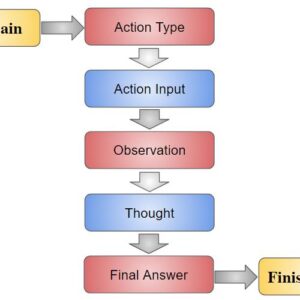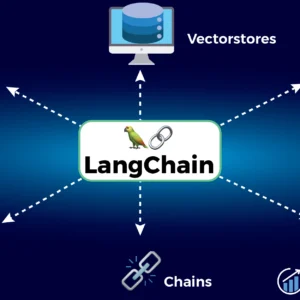LangChain is an open-source framework designed to facilitate the development of applications powered by large language models (LLMs). It offers a suite of tools, components, and interfaces that simplify the construction of LLM-centric applications. With LangChain, it becomes effortless to manage interactions with language models, seamlessly link different components, and incorporate resources such as APIs and databases.
LangChain offers tools and abstractions to connect LLMs to different data sources, create complex applications, and smoothly scale them for production. It’s made to be flexible and adaptable, which means we can use it to create a wide range of applications, including
- Chatbots
- Question answering systems
- Text summarization systems
- Natural language generation systems
- Code generation systems
- Data analysis systems
Modules of LangChain
LangChain comprises six primary modules:
i) Model I/O: This module provides an interface for connecting to language models.
ii) Chains: This module constructs sequences of calls.
iii) Agents: This module lets chains choose which tools to use, given high-level directives.
iv) Memory: This module persists in the application state between runs of a chain.
v) Prompt: A language model prompt is user input guiding the model to generate relevant and coherent language-based responses.
vi) Callbacks: This module logs and streams intermediate steps of any chain.
Getting Started with Langchain
To get started with Langchain, you can follow these basic steps:
i) Installation: Install Langchain using pip or another package manager.
pip install langchain
ii) Basic Setup: Import Langchain and configure it with your preferred language model.
from langchain import Langchain
# Initialize Langchain with a model
lc = Langchain(model='openai-gpt-4')
iii) Creating a Chain: Define and create a chain of tasks.
chain = lc.create_chain([
{'task': 'fetch_data', 'source': 'api', 'url': 'https://example.com/data'},
{'task': 'process_data', 'method': 'clean'},
{'task': 'generate_response', 'prompt': 'Summarize the data: {data}'}
])
iv) Running the Application: Execute the chain and handle the outputs.
result = chain.run()
print(result)

